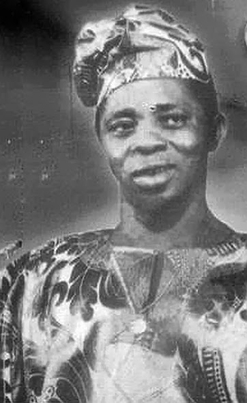Ayinla Omowura’s Legacy Resonates 45 Years After His Death.
- Home
- Ayinla Omowura’s Legacy Resonates 45 Years After His Death.

Ayinla Omowura’s Legacy Resonates 45 Years After His Death.
Forty-five years after his death, the legacy of Apala music icon Ayinla Omowura continues to inspire fans and cultural enthusiasts. The town of Itoko in Abeokuta recently hosted a week-long celebration in his honour, reflecting on his enduring influence on Yoruba culture and music.
The commemorative events included prayers, fan gatherings, and a grand musical concert featuring artists across generations. The performances paid tribute to Omowura’s lyrical depth, cultural pride, and social commentary.
“Ayinla was more than a musician; he was a visionary. Much of what he sang about still resonates today,” said Sikiru Gbadeyan, a long-time fan. Student and dancer Bisi Oyebanji added, “He championed the voice of the common man and promoted our values through music.”
Born in 1933 in Abeokuta, Ayinla Omowura had no formal education. Before gaining fame, he worked various jobs—including as a driver, butcher, and carpenter. His music career took off after being discovered by drummer Adewole Alao, who became his lead percussionist.
Omowura’s work was known for its sharp social critiques and deep use of Yoruba proverbs and metaphors. Through albums like *Owo Udoji*, *National Census*, and *Orin Owo Ile Eko*, he addressed government policies, moral decay, and everyday struggles of Nigerians. Despite his lack of schooling, his music displayed intellectual and poetic depth.
His personal life was as bold as his lyrics. He was known for his fiery temper and often clashed with fellow musicians like Haruna Ishola and Sikiru Ayinde Barrister through musical rivalries. In one such incident, after a rival mocked his appearance in a song, Omowura reportedly went to a dentist to respond in kind.
Though controversial, Omowura was respected for his unapologetic authenticity and connection to the streets. His flamboyant style, commanding stage presence, and commitment to his roots made him a cultural icon. Spiritually, he straddled both Islam—having performed the Hajj in 1975—and traditional Yoruba beliefs.
His legacy remains firmly embedded in Yoruba musical heritage, with his songs continuing to influence and inspire decades later.
Manager – Oversees the daily operations, editorial planning, and strategic direction of the platform. A graduate with a solid academic foundation in media and communication, Faith brings a wealth of experience to the TokinPoint.
Discover more from TokinPoint
Subscribe to get the latest posts sent to your email.
- Share
FAITH MIMDOO KEGH
Manager - Oversees the daily operations, editorial planning, and strategic direction of the platform. A graduate with a solid academic foundation in media and communication, Faith brings a wealth of experience to the TokinPoint.
